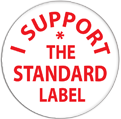I discovered an interesting innovation in economic theory today, called Nomad Economics.
I’ve always felt that the market acting as an aggregate of individuals–the “invisible hand” setting prices–is pretty amazing. It can be a hyper-efficient tool for simultaneously setting value and assigning resources for maximal economic utility. But there are also some huge flaws. Not only are there several well-known market failures–such as monopolies and the management of public goods–but even the underlying assumption of “rational behavior” is clearly false. We are all guilty of acting irrationally from time to time when it comes to money.
One of the basic ideas behind Nomad Economics is that between the “invisible hand” of neoclassical economics and the “large entity dynamics” of socialism and marxism lies a range of “renegade” economic actors that explain a lot of relevant interactions.
Abe Burmeister writes that
Renegade economics objects are a class of entities that lies between these two poles. They are larger than individuals, yet smaller than governments (or at least the larger ones) and far more concrete than “society”. Corporations are renegade economic objects. So are social networks. Markets themselves (but not “the market”) are renegade economic objects. So is money itself. Non profit corporations are renegade economic objects too, as are open source software projects. Terrorists groups are often renegade economic objects, and perhaps the “military industrial complex” is too. Closer to home families are renegade economic objects and cities, neighborhoods and other urban concentrations are too. There is a whole world of these things, and it has just begun to be explored.
Fascinating stuff. In his book, Abe goes into much more detail about nomad economics –it is much more than just about renegade objects–and how it fits into/works with neo-classical market theory.
The fascinating thing is how Abe’s work could be so hyper relevant to figuring out the next phase of Search.
The net is not only accelerating and expanding the scope of classic market dynamics–making the invisible hand that much more adept–it is also giving rise to activities that don’t fit into classic economic theory, like the “gift economy” of open source software. Pay-Per-Click advertising has radically transformed most online–and many offline–business models, fundamentally shifting how we think about marketing and customer acquisition. It not only sped up our ability to perceive the Attention economy, it tells us immediately how Attention converts into sales and profit when we track our PPC into our shopping carts.
Yet, when Bill Gross first launched PPC with GoTo.com, it was practically dismissed out of hand. It was crass to let money decide the best Search result. The purity of Google’s page rank seemed most holy and just in comparison. But the genius of PPC is that it is a real-time market. It is the invisible hand, using market dynamics and the magic of market pricing to identify the most likely best result for users’ Attention. It’s brilliance was pure Adam Smith.
And yet, there is still something to be said for those PageRank results. Anecdotally, I find myself using the “organic” results from Google far more often than I do the paid ones. Sure, when my intent is to purchase, I’ll often use the sponsored links. I know those folks are offering me products or services. But much of the time, my attention wants to be spent on non-market transactions. I’m exploring or learning or just hoping to be entertained. In those cases, my highest estimated Return-On-Attention will be from websites that have nothing to sell in the classic sense and hence will never be part of the PPC marketplace.
That’s pretty interesting. While we have the worlds largest, fastest real-time market for converting attention into revenue, a huge portion–perhaps the majority–of that attention seeks out non-market resolution. Seems to me that there’s more going on here than the invisible hand.
Check out Abe’s work. If he can give us a few new ways to think about how to make the most of our attention, perhaps we might just be able to think up some new ways to improve Search.
I’ll have more to say once I’ve digested his book.

